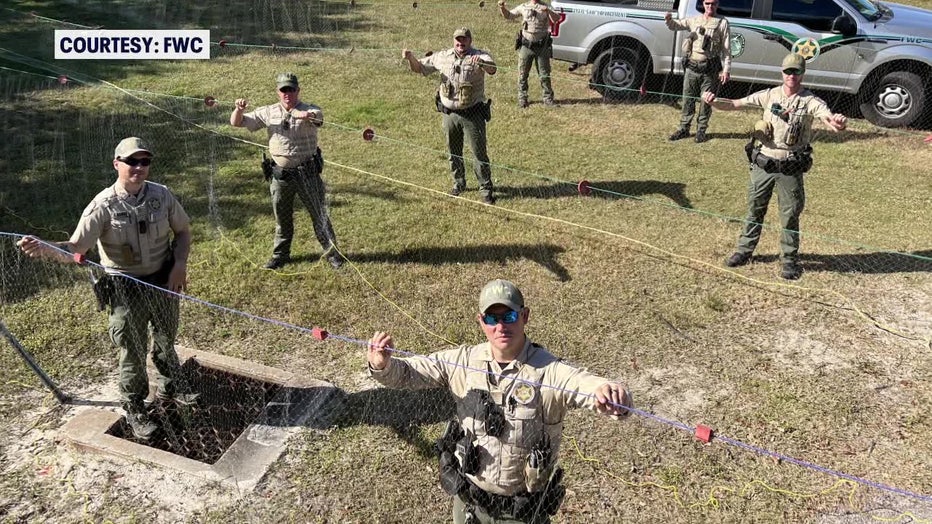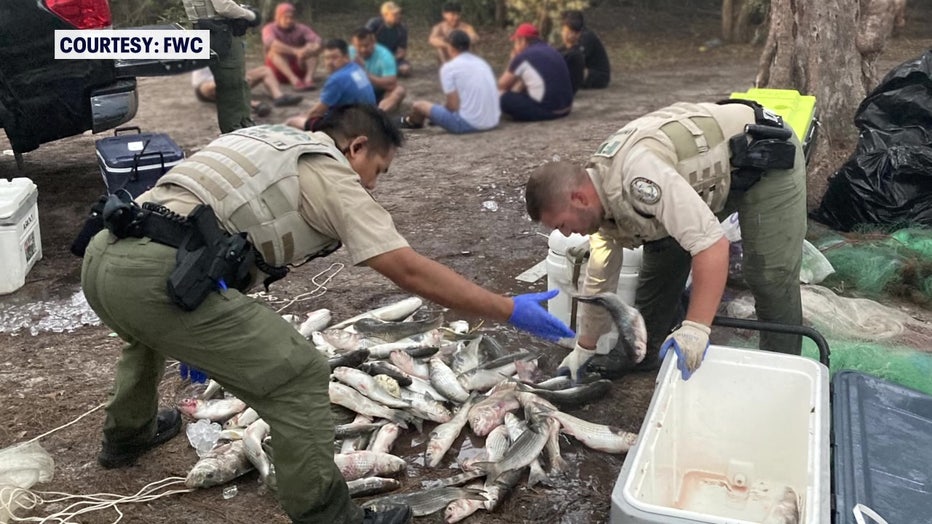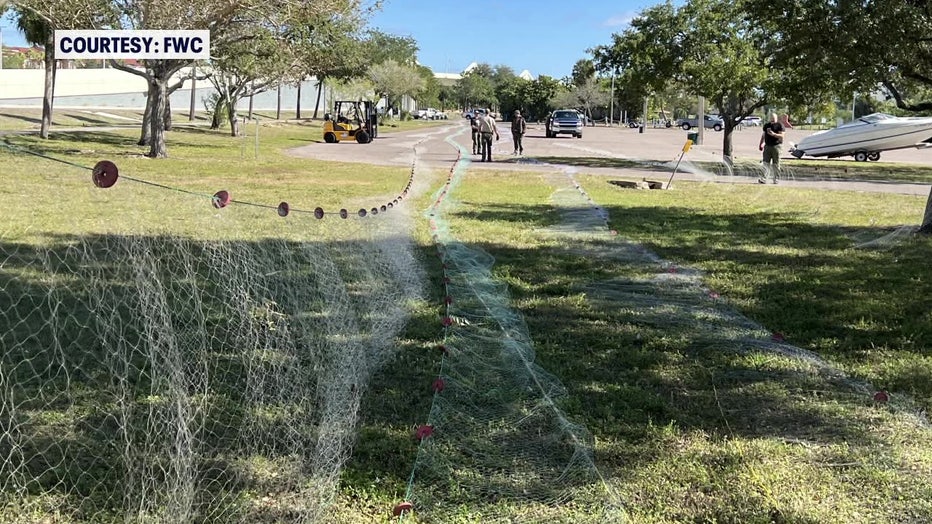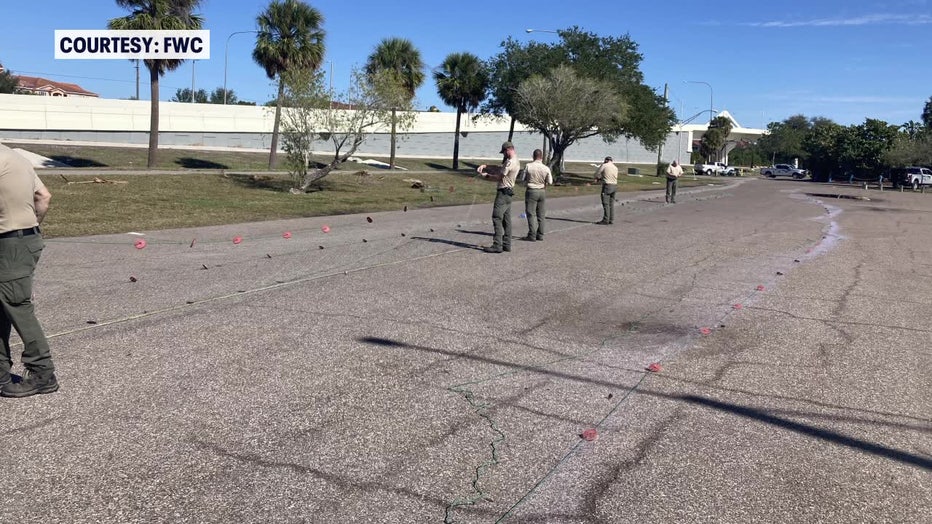FWC officers hook 10 for illegal fishing with gillnets the length of 4 football fields
ST. PETERSBURG, Fla. - Officers with the Florida Fish and Wildlife Conservation Commission arrested 10 people who are accused of fishing with illegal gill nets near the Sunshine Skyway. FWC says the nets measured more than four and a half football fields in length and possibly ensnared hundreds of fish and sharks in less than a day.
FWC says it got an anonymous tip last week about some suspicious-looking nets in the water at the Skyway Bridge North Rest Area.
Captain Thomas Van Trees with Florida Fish and Wildlife Commission said the nets are made out of monofilament and work by "gilling" fish and entangling them within the mesh.
"It kind of looks like a wall of netting. The top of the net will have floats on top so that it floats on top of the water, and the bottom will have lead weights so that it sinks to the bottom," Van Trees explained. "It's a huge harm to our marine species, because if you're trying to catch one species or not, it typically doesn't matter. It catches everything and it kills a lot of it. Fish to crab to shark, you name it, it'll get stuck in it."

After 10 hours of surveillance, FWC officers arrested 10 people, all from Atlanta. Their four nets measured 1,660 feet. FWC also seized over 500 pounds of snook, barracuda, catfish, mullet, sheepshead, shark, and more.
Gill nets have been banned in Florida since 1995. Anyone caught using them will be charged with a third-degree felony.
Donald Growdon spent Thursday evening fishing at the Skyway pier. After hearing about the arrests, he said, "It hurts everybody that wants to go out and recreational fish."

"What we do today affects the rest of tomorrow," his son, Jason Growdon said. "Our future. And if we are trying to have a place for our young ones or children in the future, we need to pay attention to what we are doing now."
The 10 people arrested in this case face a list of charges that includes:
- One count third-degree felony - use of gill net in state water.
- One count first-degree misdemeanor - major violation pertaining to snook.
- Two counts second-degree misdemeanor - undersized sheepshead.
- 13 counts second-degree misdemeanor - undersized black drum.
- Four counts second-degree misdemeanor - undersized permit.
- Five counts second-degree misdemeanor - illegal method of harvest of snook.
- Five counts second-degree misdemeanor - undersized snook.
- Five counts second-degree misdemeanor - out-of-season snook.
- Three counts second-degree misdemeanor - undersized trout.
- Nine counts second-degree misdemeanor - illegal method of harvest of shark.
- Nine counts second-degree misdemeanor - illegal method of harvest of blue crab.

The maximum penalty for a third-degree felony charge is five years imprisonment and/or a $5,000 fine. The maximum penalty for a first-degree misdemeanor charge is one year in jail and/or a $1,000 fine, and each second-degree misdemeanor holds a penalty of up to 60 days in jail and/or a $500 fine.


